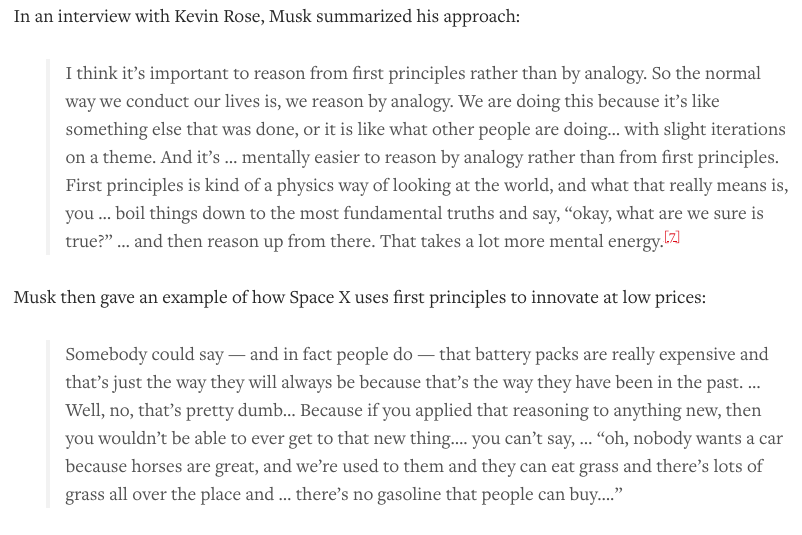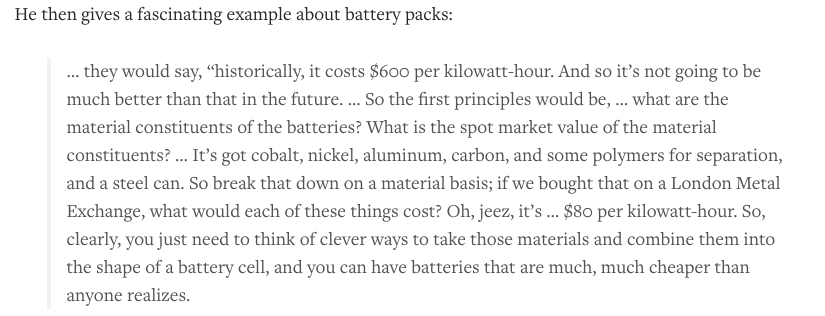First Principle Thinking
This approach was used by the philosopher Aristotle and is used now by Elon Musk and Charlie Munger.
Aristotle, writing on first principles, said:
In every systematic inquiry (methodos) where there are first principles, or causes, or elements, knowledge and science result from acquiring knowledge of these; for we think we know something just in case we acquire knowledge of the primary causes, the primary first principles, all the way to the elements.
It’s a concept similar to cook and chef. Minute difference but that difference becomes a major game changer. Cooks follow a given recipe and make slight variations to it and the chefs are the ones who actually invent the recipes. The good chefs can become the game changer for the best restaurants. Good cooks on the other hand can only make certain dishes/items in a great way.
Start ups need to have these chefs who have the first principle thoughts because they know the problem and can solve them by understanding the crux of the issue by doing indifferent things rather than addressing the symptoms or doing the rational and traditional problem solving way.
A lot of companies during the interview process have hiring biases during the interview discussions. Can we keep those biases aside? What did the person learn from the previous failure vs what could the person have done differently are two different approaches. While it’s good to be data driven, often we see people being trapped in their own data biases because that is how everyone has been operating, that is how they have used data. How can we break them, how can we start anew? This approach will open up multiple new avenues and more than that it is a stressful mental model for all of us.
As kids we often asked questions like why, what and how. Why must we not talk to strangers? What happens if we do? What happens if we don’t? These reasonings are very important because this is the first principle that we all have used at least more than once until now and have been able to the arrive to the right conclusions. A lot of times we have also received ambiguous answers from our parents who said- “Because I said so or because your dad said so…”. These are the things we still need to keep in mind while at our workplace when we get such responses from our managers or higher authorities. These are the things which will pull us down as a company and move the team slower.
“To understand is to know what to do.” — Wittgenstein


Approach towards First Principle:
STEP 1: Identify and define your current assumptions
“If I had an hour to solve a problem, I’d spend 55 minutes thinking about the problem and 5 minutes thinking about solutions.”
— Albert Einstein
STEP 2: Breakdown the problem into its fundamental principles.
“It is important to view knowledge as sort of semantic tree. Make sure you understand the fundamental principles, ie the trunk and big branches, before you get into the leaves/details or there is nothing for them to hang on to.”
– Elon Musk
STEP 3: Create new solutions from scratch
“The person who says he knows what he thinks but cannot express it usually does not know what he thinks.”
— Mortimer Adler
First principles thinking is a powerful way to help us break out of this herd mentality, thinking outside the box and innovate completely brand new solutions to familiar problems.
By identifying our current assumptions, breaking these down into their basic truths and creating solutions from scratch, we can discover beautiful and simpler solutions to complex problems and make unique contributions in all the fields.